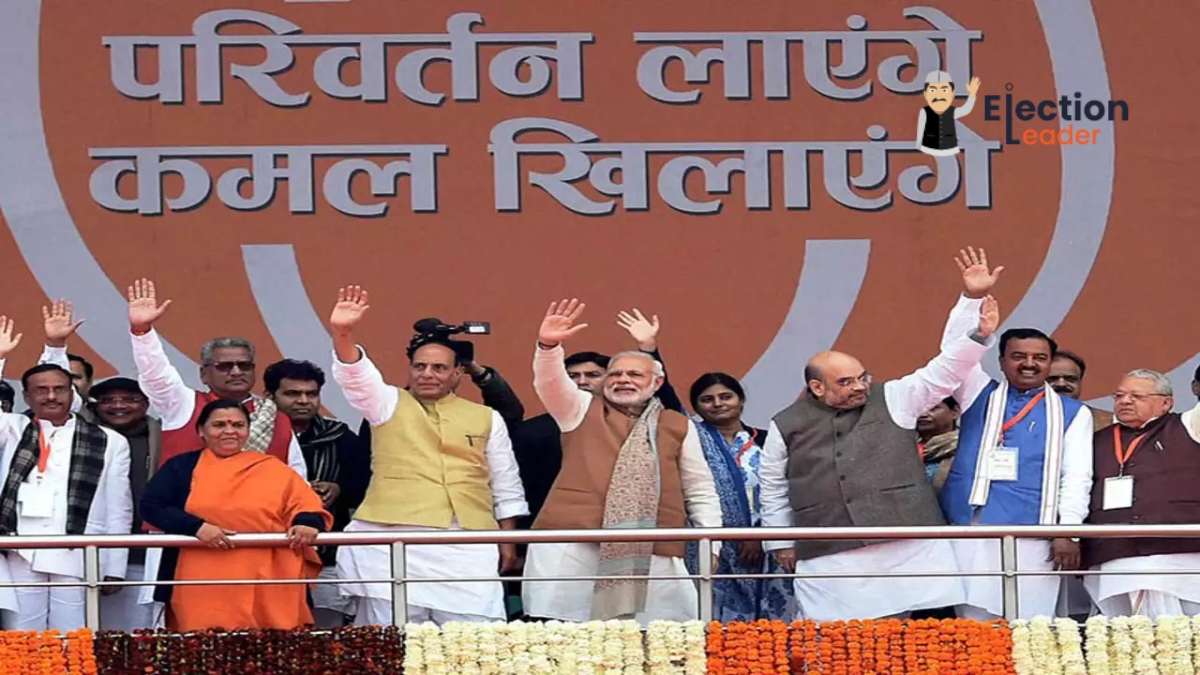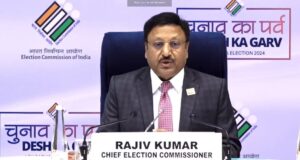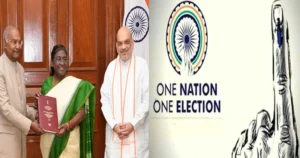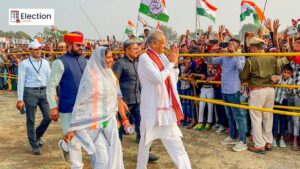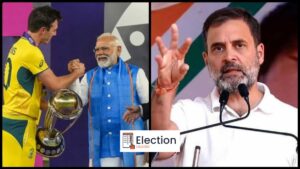The polls timetable is anticipated to be released at any moment as the Election Commission completes its evaluation of the preparations in the five states that will hold the election.
Recent elections in Madhya Pradesh featured a direct race between the BJP and the Congress. The ruling BJP has already nominated candidates in the seats it lost in the 2018 elections and where it expects a tough struggle, in an effort to get a jump on its competitors.
This includes bringing in central figures into the state contest to shake up the political environment. To announce and launch development projects, Prime Minister Narendra Modi has increased his visits to the state, including this one on Thursday.
In order to end the 15 years of BJP hegemony, the Congress, which has not yet announced its candidates, will be looking to improve on its successful 2018 performance, in which it emerged as the only party with sufficient support to form the government with the assistance of the Bahujan Samaj Party, Samajwadi Party, and Independents.
But a little over a year later, Congressman Jyotiraditya Scindia and 22 other Congress legislators defected to the BJP, toppling the Kamal Nath administration and installing Shivraj Singh Chouhan of the BJP as chief minister for a fourth time, making him the state’s longest-serving chief executive.
Latest Blog: Is the BJP running the ED and CBI? AAP hits back as BJP claims documents implicate ‘high-level’ figure
Table of Contents
ToggleTable of Contents
Parties and the previous four polls
With the exception of the brief period following the 2018 elections, the BJP has not been the government in Madhya Pradesh since 2003. Chouhan succeeded Babulal Gaur as CM in 2005 after the BJP won the 2003 elections, replacing Gaur.
While the BJP suffered some losses between 2003 and 2008, Chouhan’s party won in 2013 by increasing both its seat total and vote share. Despite an increase in vote share in 2013, the Congress gained fewer seats than it did in 2008.
But things were different in 2018. The Congress put up a valiant fight against the BJP, matching its vote total and narrowly missing out on a majority. The BJP suffered its first defeat in an MP Assembly election since 1998, yet it still managed to win back the majority through defections in 2020.
Seats won by party
| Party | 2003 | 2008 | 2013 | 2018 |
|---|---|---|---|---|
| BJP | 173 | 143 | 165 | 109 |
| Congress | 38 | 71 | 58 | 114 |
| BSP | 2 | 7 | 4 | 2 |
| SP | 7 | 1 | 0 | 1 |
| Bharat Jan Shakti | 0 | 5 | 0 | 0 |
| Others | 10 | 3 | 3 | 4 |
Vote share by party
| Party | 2003 | 2008 | 2013 | 2018 |
|---|---|---|---|---|
| BJP | 42.5% | 37.6% | 45.7% | 41.6% |
| Congress | 31.6% | 32.4% | 37.1% | 41.5% |
| BSP | 7.3% | 9.0% | 6.4% | 5.1% |
| SP | 3.7% | 2.0% | 1.2% | 1.3% |
| Bharat Jan Shakti | 0.0% | 4.7% | 0.0% | 0.0% |
| AAP | 0.0% | 0.0% | 0.0% | 0.7% |
2003 Polls
These elections saw the first BJP victory since Chhattisgarh was split off from MP, ending the ten years of Congress control under CM Digvijaya Singh. Uma Bharti became the chief minister after the BJP won 173 of the 230 seats it ran for. 38, 7 and 2 seats, respectively, were won by the Congress, SP, and BSP.
The SP ran for 161 seats, the BSP for 157, and the Congress for 229 seats. Three of the 61 seats that the indigenous Gondwana Gantantra Party (GGP) ran for were won.
The BJP won 30 of the state’s 34 Schedule Caste (SC) seats, Congress took three, and SP got one. The BJP won 37 of the 41 Scheduled Tribes (STs), while the Congress and GGP each won two.
2008 Polls
The Congress managed a minor rebound of 33 seats in 2008, but it wasn’t enough to prevent the BJP from winning a clear majority, despite the saffron party’s seat total decreasing by 30 and vote share by 5% points. The Congress’ result in 2003 would go on to be its worst for the next 20 years.
Chouhan was granted the top position once more for his first full term after becoming CM toward the conclusion of the previous BJP government’s rule.
BJP, Congress, and Mayawati’s BSP were the three parties that competed for 228 of the 230 seats. The BJP won 143 seats, followed by the Congress with 71, the BSP with 7, and the Samajwadi Party with one. The BJP dominated the rest of the state, with only a few pockets of Congress influence in the western Malwa and northern Gird districts.
These elections were notable for the introduction of the Bharat Jan Shakti Party (BJSP), founded by former chief minister Bharti, a fiery Hindutva politician expelled from the party in 2005 due to “indiscipline.” The BJSP, which ran for office in 201 seats and was expected to reduce the BJP’s vote share, instead won just 5 of them with 4.7% of the vote. Bharti disbanded her party in 2011 and joined the BJP again.
The BJP won 25 and the Congress won 9 of the 35 SC seats in the state. The race was more competitive in the 47 seats set aside for STs; the BJP took 29 and the Congress, 17.
Digvijaya Singh, the previous two-time chief minister of the Congress, decided not to run for office again for ten years after the party’s second straight defeat. This left former Union minister Suresh Pachouri to take over as party leader.
Latest Blog: Rahul Gandhi: The Future Of Indian Politics?
2013 Polls
Chouhan and the BJP received a significant boost from the 2013 election victory, which saw the party return to power with a larger seat and vote share than in 2008. Although the Congress came close in the northeastern Baghelkhand region, which shares borders with UP, the party was dominant in the majority of the state’s regions, including Malwa and Gird. Additionally, the BJP increased its influence in Vindhya Pradesh’s center region.
165 seats were gained by the BJP, 58 by the Congress, and 4 by the BSP. In turn, the parties ran for 230, 229, and 227 seats. All 164 seats that the SP ran for were lost to them.
The BJP increased its total of SC seats to 28, the Congress decreased to 4, and the BSP won 3. Along with winning 31 ST seats, the BJP also received 15 seats from the Congress and 4 from Independents.
Chouhan, Babulal Gaur, and Kailash Vijayvargiya—all prominent BJP figures—won. Gopal Gaurav, a senior state cabinet member who has served as an MLA continuously since 1985, and Yashodhara Raje Scindia, a Gwalior royal, were both reliable sources of support for the party. Anoop Mishra, the nephew of former prime minister Atal Bihari Vajpayee, was also run by the BJP, though he ultimately lost.
Despite an almost 5% increase in votes, the number of seats in the Congress decreased by 13 when compared to 2008. While Pachouri was unsuccessful in keeping his seat, prominent Congress wins included Jaivardhan Singh, who ran for the position held by his father Digvijaya Singh, and Ajay Singh, the son of Arjun Singh, a former chief minister of Madhya Pradesh and current Union minister.
2013 saw Kamleshwar Patel win his first Assembly election. Since his unexpected election to the newly formed Congress Working Committee this year, he has gained notoriety.
2018 Polls
Despite the Congress being the single largest party, the elections resulted in a hung Assembly. The difference in the vote shares of the two parties came in at 0.1%, one of the smallest margins ever recorded. The party virtually quadrupled its seat total from 2013 at the expense of the BJP, and its vote share increased by over 4% points.
Among the most fiercely disputed areas were Malwa and north-central Bundelkhand. The BJP dominated the Baghelkhand area and the Bhopal division, while the Congress was the obvious victor in the Gird.
The Congress significantly reduced the number of reserved seats won by the BJP. The Congress won 17 SC seats and quadrupled its ST seat total to 30, while the BJP lost 18 SC seats and 16 ST seats.
Kamal Nath, a former Union minister and nine-term member of the Lok Sabha, led the Congress’s campaign in 2018. He later won a byelection to become the chief minister. Sachin Yadav, the son of former deputy CM Subhash Yadav, state unit co-chairman Jitu Patwari, and Jaivardhan Singh were among the winners despite the defeat of other well-known candidates like Pachouri and Ajay Singh.
Several BJP ministers in office at the time were ousted. Apart from Chouhan, who defeated former Congress Union minister of state Arun Subhashchandra Yadav, other significant winners for the party included Yashodhara Raje Scindia for a second term in a row, Rahul Singh Lodhi, Uma Bharti’s nephew and first-time candidate, and Vijayvargiya’s son Akash. The future of Akash is unknown because Vijayvargiya is now one of the central figures who will be used in the state conflict.
Only two of the 227 BSP candidates were successful in 2018. This time, the SP ran for significantly fewer seats, but only one of its 52 candidates was successful. Despite running for 208 seats, the Aam Aadmi Party did not have much of an influence in the state’s first election.
The BSP and SP have had a small but noticeable presence in the state. But in 2018, they made enough gains that the Congress decided to work with them to create the government. To win the reserved seats in 2023, the BSP has teamed up with the Gondwana Gantantra Party. This week, SP leader Akhilesh Yadav declared his desire for his party to “fight together” in Madhya Pradesh with INDIA bloc partner Congress.
Another INDIA bloc member, the AAP, has said that it will run again. 39 applicants have been named thus far. The party might introduce other candidates, and it’s not yet clear whether it plans to form an alliance with either the Congress or the SP.
Latest Blog: Could a BJP-JD(S) alliance swing 2024 Lok Sabha Elections in Karnataka?
Lok Sabha polls
Despite its defeat in the 2018 Assembly, the BJP won 28 of the state’s 29 Lok Sabha seats in 2019. On the back of a Narendra Modi wave, the BJP gained 208 Assembly seats in the 2019 elections, while the Congress won 22.

